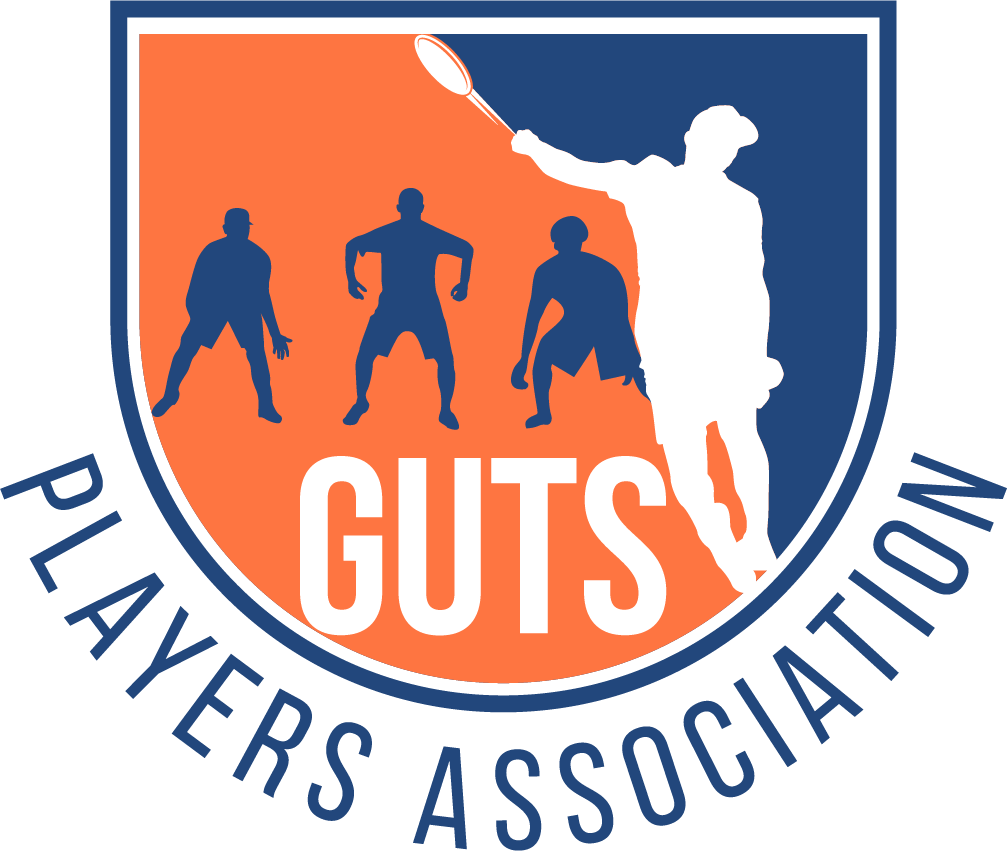The Beginnings: The Healy Family & The IFT
In 1958, two brothers, Boots and John Healy, discovered a "Pluto Platter" in a store in Minneapolis. It was passed about the family until Tim and Mary Healy and several friends began tossing it around on July 4, 1958. By the end of the day, the game of Guts was invented—two teams of five players stand fourteen meters (fifteen yards) apart and throw the Frisbee (less than vertical and within reach) to be caught by the other team with one hand.
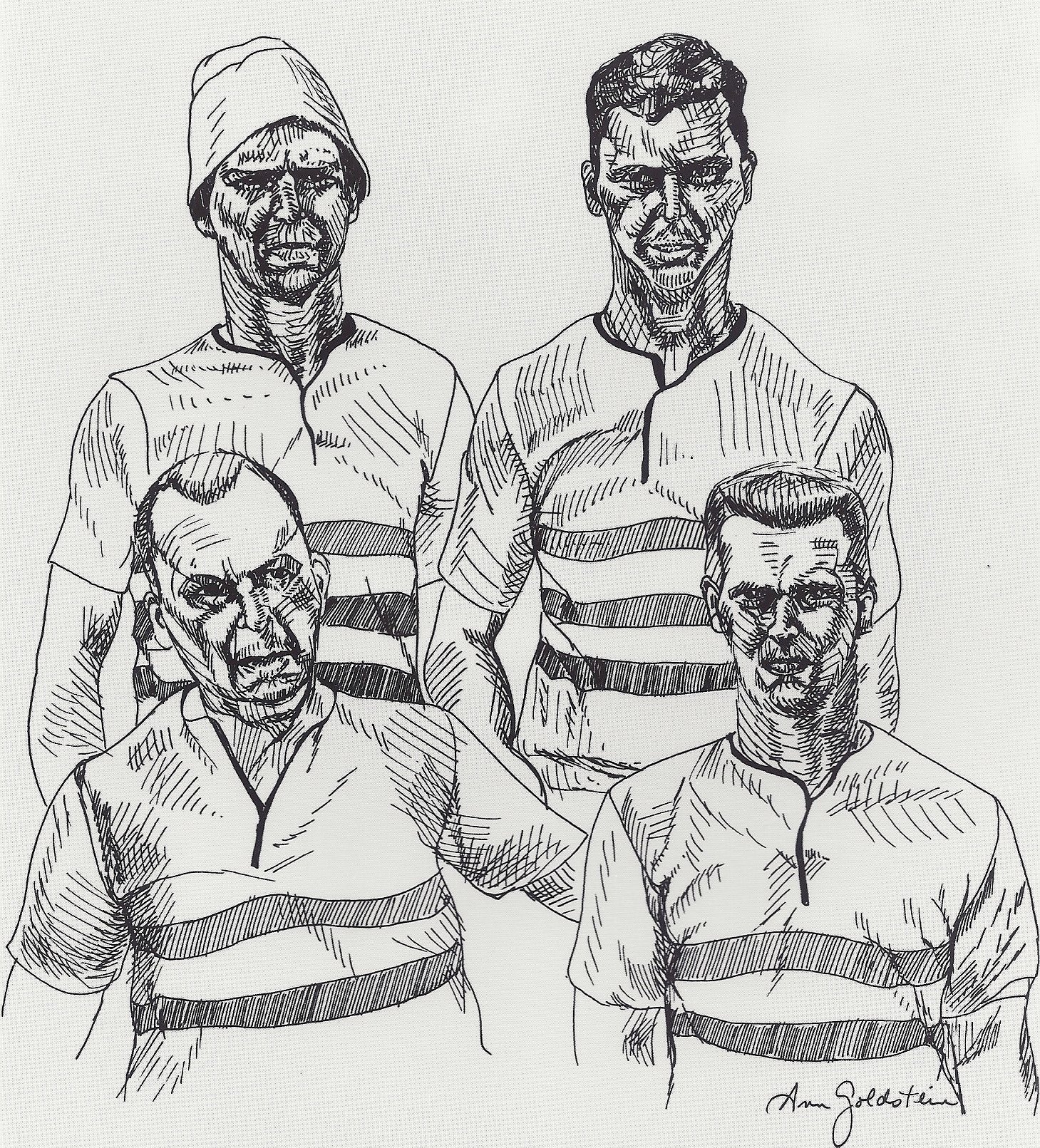
The Healy Brothers "Boots Bob," Jake, Tim, and Pete Healy
That August, Tim and Mary Healy took the disc to the family picnic in Eagle Harbor, Michigan, and played the game of Guts Frisbee, and the "Invitational" Frisbee Tournament had its beginning. The family and a few friends attended for several years. With outside interest growing, invitations were sent all over the world to "everybody who was anybody." Next, posters and T-shirts were created to promote the event.
The fun event was dominated by the North Central team of four Healy brothers-Bob, John, Tim, and Peter, with Dick Warden, John O. Sanregret, and Jack Fenton filling in as fifth men in different years.
In 1967, the tourney started growing and George "Thor" Anderson and his team, the Foul Five, become the new winners. Ed Headrick, then executive vice president and general manager of Wham-O, was soon to change this. In 1968, "Steady" Ed took his sons, along with Steve Sewell, Jay Shelton and Stancil Johnson, and lead his team to victory. The team was known as the California Masters and repeated in 1969. The Healy family continued to run the IFT through much of the 1960s with help from Jim Boggio.
In 1969, the IFT was highlighted by the attendance of Julius T. Nachazel, a professor at Michigan Technological University. The coveted Nachazel Trophy has always been presented to the winner of the IFT and been a symbol of Guts supremacy. Goldy Norton and Jon Davis also figured greatly in the future of the tournament. Now the "International" Frisbee Tournament, Jon Davis took over as director in 1970 and saw Mel Visser bagpipe in the Foul Five as they defeated a bunch of kids known as the Highland Avenue Aces of Chicago.
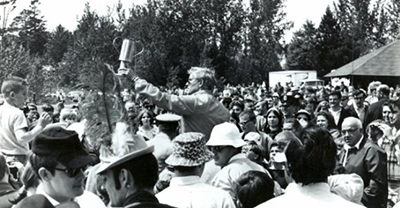
Hall of Famer Stancil "Super Shrink" Johnson holds the Julius T. Nachazel Cup
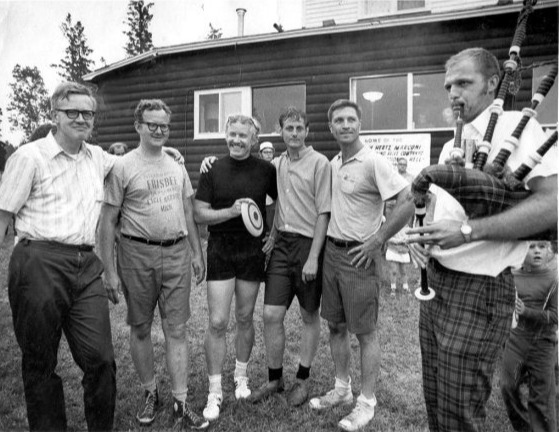
The Foul Five: Hugh Anderson, George "Thor" Anderson, Stancil Johnson, ?, Bruce "Sky King" Richardson, Mel Visser
The '70s & '80s
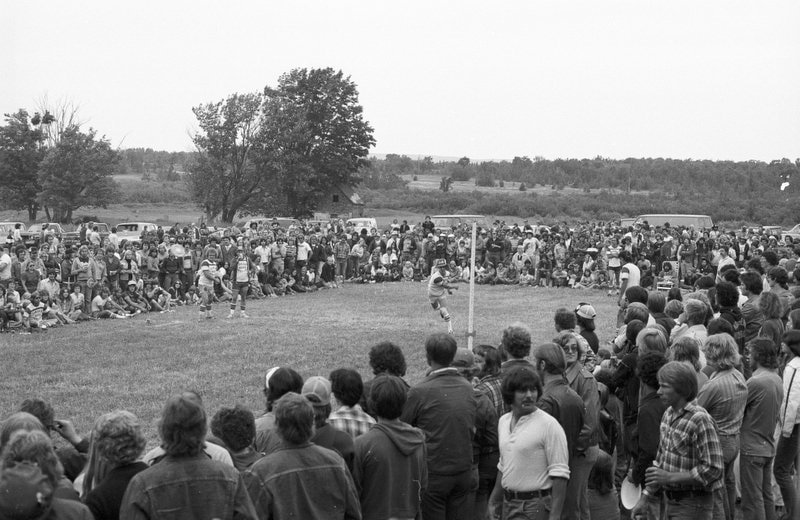
The 1978 IFT Finals - Library Bar (Hall of Famer Bob Hansen throwing) vs. Paul's Bar
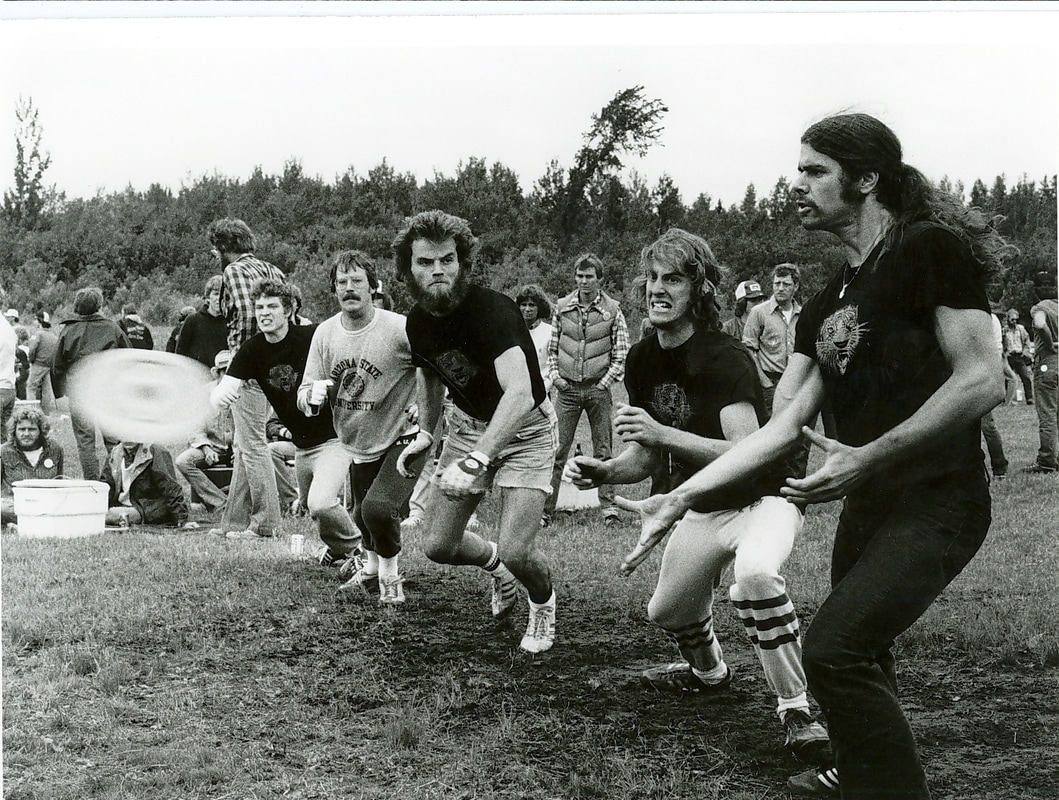
The Lightweights in 1981
Chicago's Highland Avenue Aces (not pictured) would elevate the sport to a new level. They would win the IFT in '71, '72, and '73, defeating such classic opponents as the Berkeley Frisbee Group, HMCU of Ann Arbor, the Swedetown Sweathogs, and the Bosch Hunt-hers from Calumet.
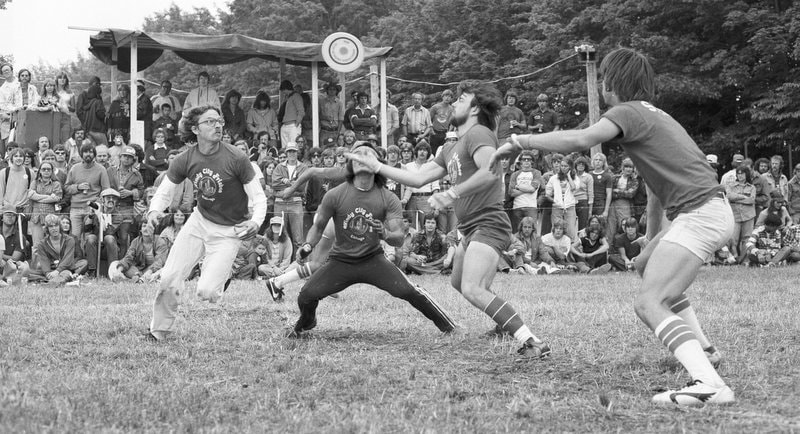
The Windy City Hitmen in the 1979 IFT Finals vs. Motor City
The Bosch team became the Library Bar team that would win in '74, '77, and '78. The WABX Air Aces from Detroit would win in '75 and '76, and parts of that team would make the Motor City team that would win in '79 and '80.
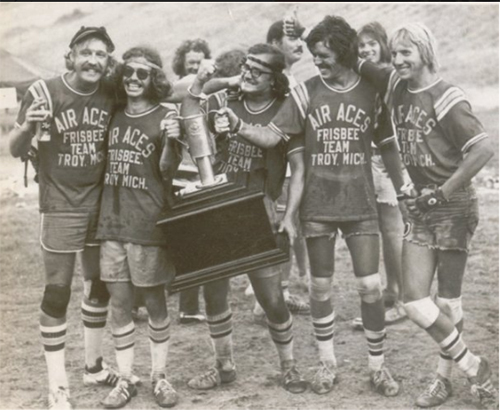
The WABX Air Aces - 1975 and 1976 IFT Champions
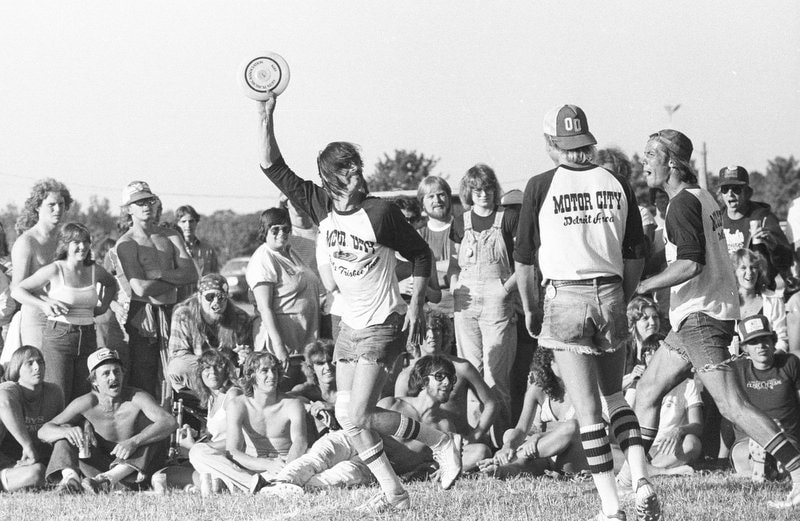
Al Bauman of the Motor City Guts Frisbee Team makes sure his opponents know who caught them
By this time the IFT had grown to some 60 teams and highs of 8,000 fans over a two-day period. Davis's promotion had paid off, Guts Frisbee, the first disc sport, had become the world's biggest disc sport also.
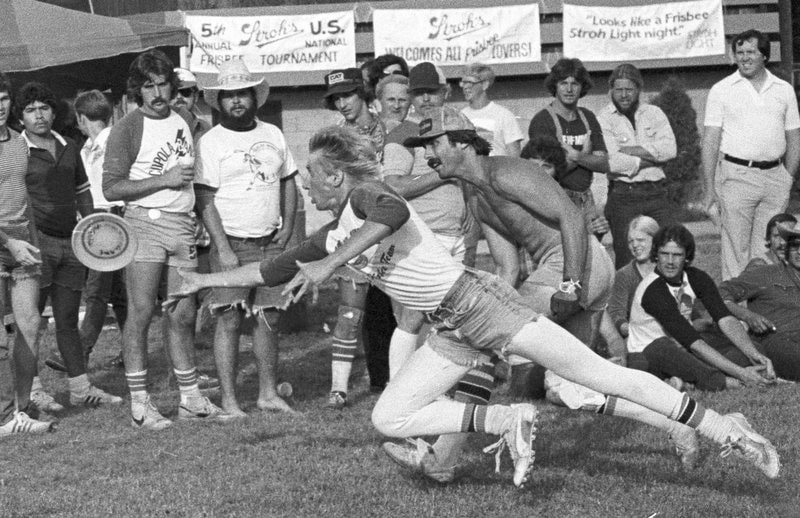
Ron Arndt makes a lunge for the catch
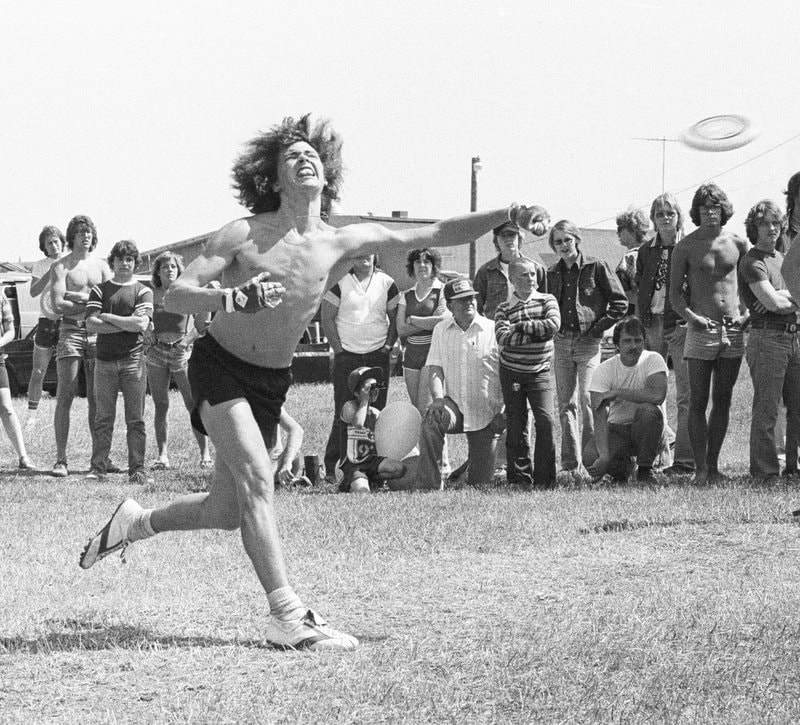
Scott "Smitty" Smith featured one of the best thumber shots in history
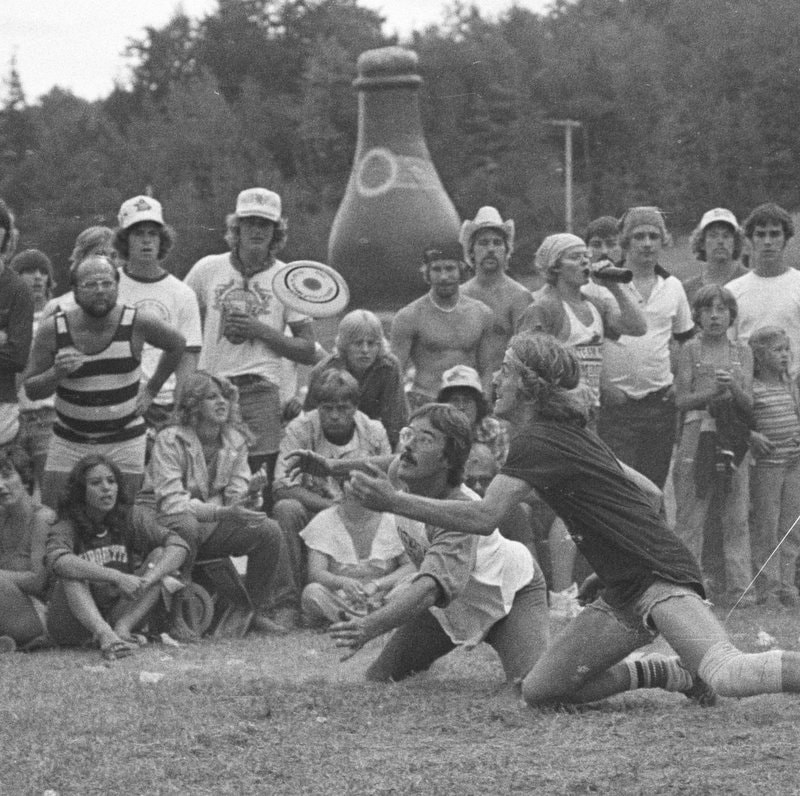
The Lightweights - 1981 IFT Champions compete in Marquette at the US Nationals
The sport of Guts started out the '80s very strong. The Lightweights of Midland, Michigan, won the IFT in 1981 and there were several other large tournaments in Chicago, Marquette, Detroit, Toronto, and elsewhere.
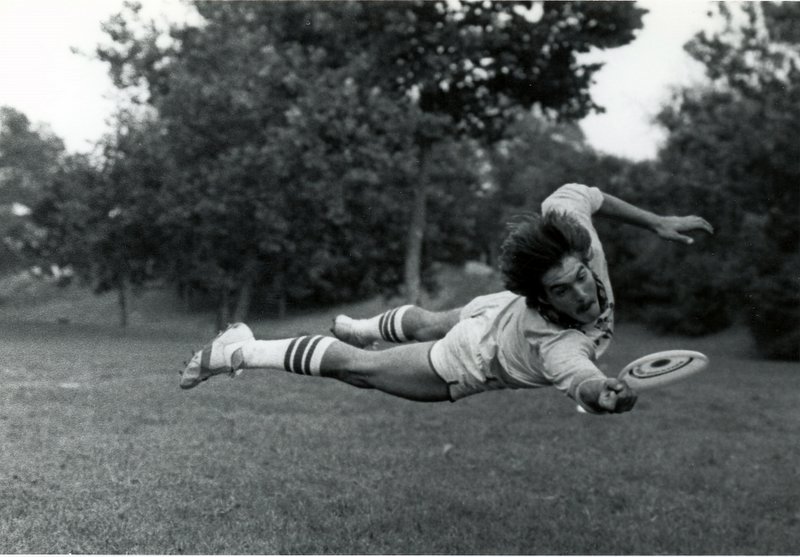
Steve Buckley lays out for a catch
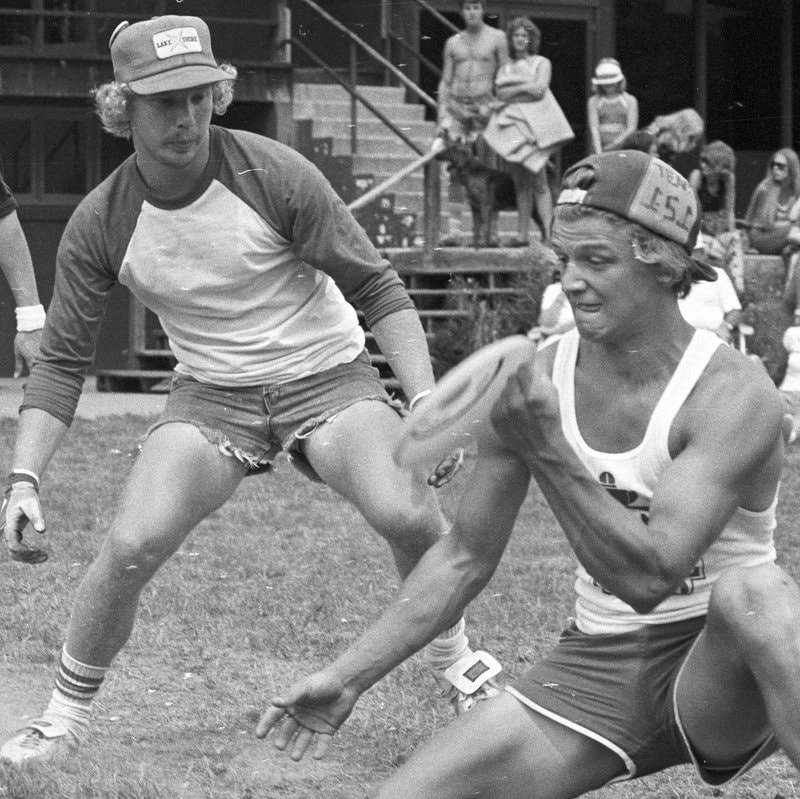
Brock "The Rock" DePetro bags a shot
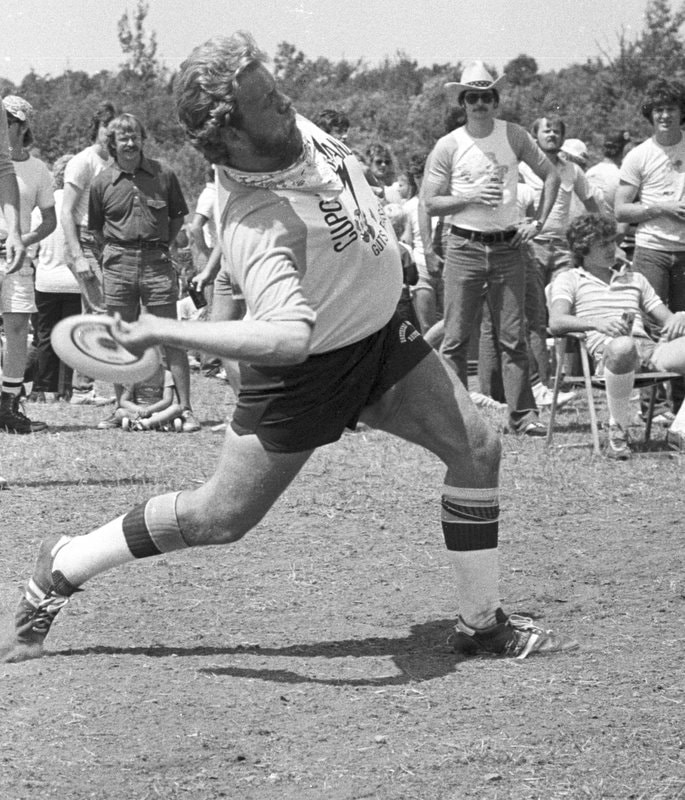
Craig "Buck" Buchanan throws his super accurate two finger
The Foothills team of California would take the Nachazel Cup out of Michigan in 1982, only to have it taken back by Hartland Michigan's Heartbreakers in '83. Hartland and the Detroit-based Cupola Bandits would dominate the 1980s. Cupola would go on to win nearly every tournament for the decade and become the most sustained dynasty in the history of Guts.
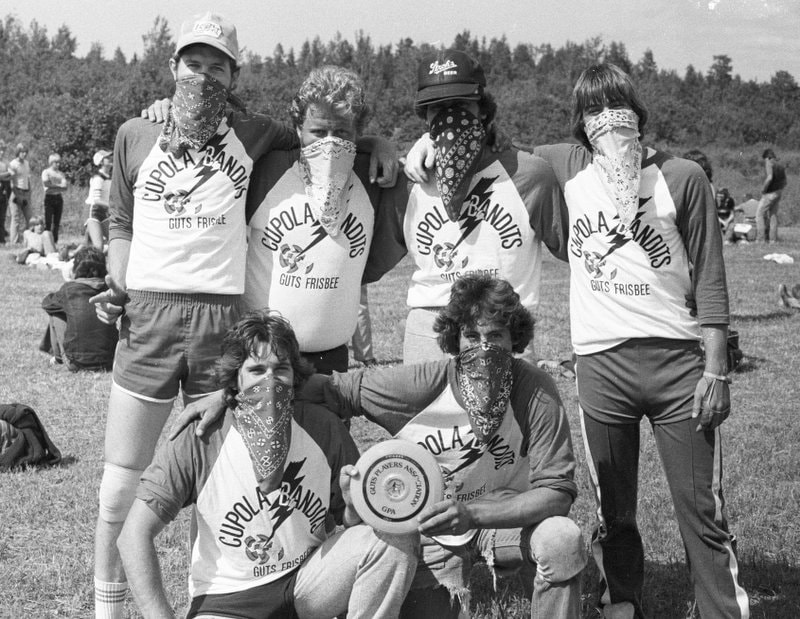
The Cupola Bandits
Though the competition remained intense, the number of teams and spectators slowly dwindled as the 80s wore on and players began getting married and having children.
The International Frisbee Hall of Fame
The International Frisbee Hall of Fame was created by Wham-O (maker of the Professional Model disc), the Copper Country Chamber of Commerce, and the International Frisbee Association in 1978. It's first classes were inducted at the 1982 Silver Anniversary IFT, and subsequent classes have been inducted every other year (more or less) since then. The name was changed to the International Frisbee / USA Guts Hall of Fame to better reflect the current focus of the Hall. The Hall of Fame is located in the 2nd floor of the Calumet Colosseum in Calumet, Michigan.
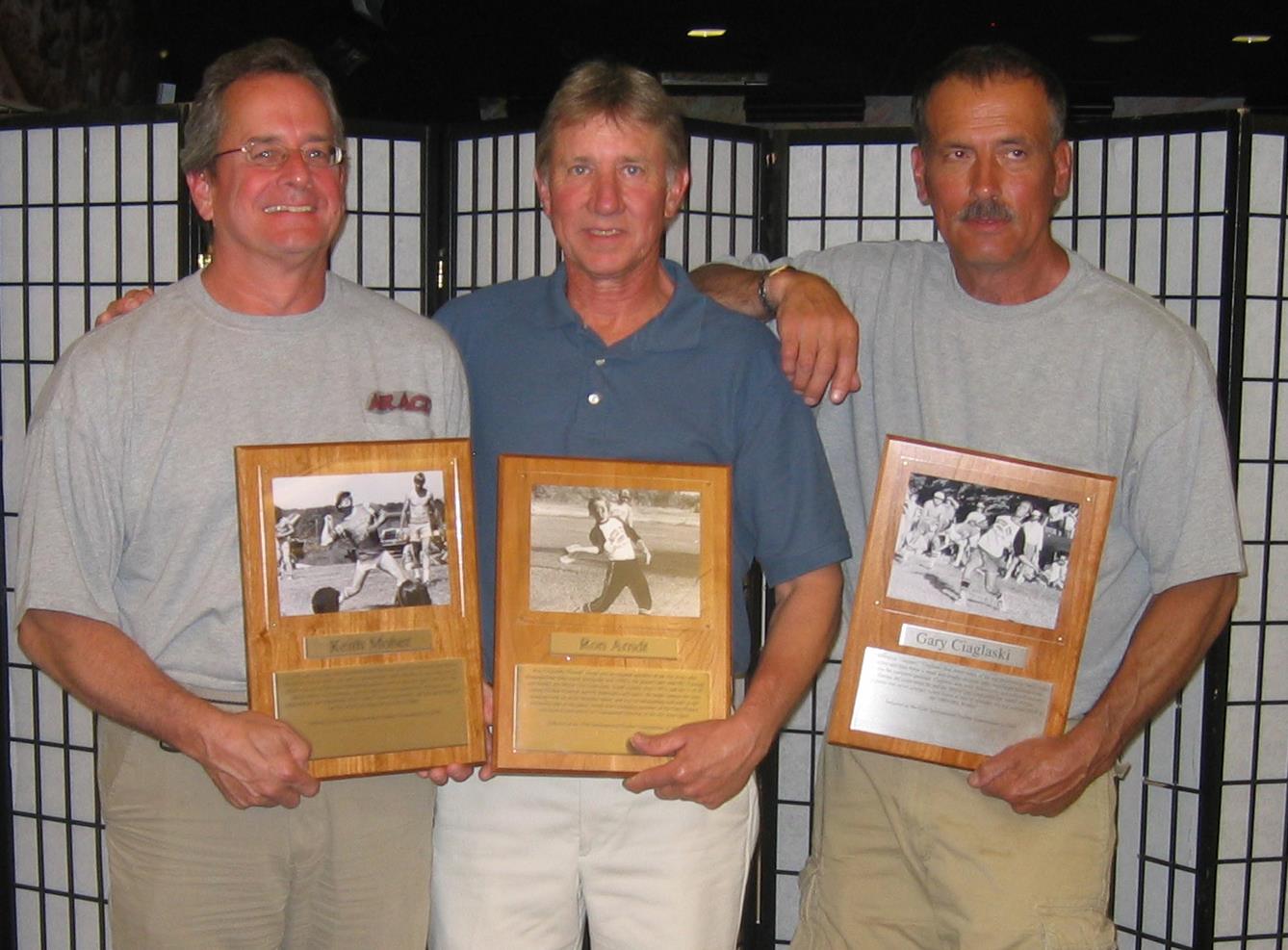
Hall of Fame Inductees; Keith Moher, Ron Arndt, Gary Ciglaski
The 90s and Beyond
The IFT downsized in the 90s, with fewer than ten teams at many tourneys. Also, the five-man game became three-man as teams struggled to field full rosters. But the level of competition continued to be high and the sport became very popular in Japan and elsewhere. A reunion IFT in 2004 helped jump-start the sport, as many of the player's from the 70s and 80s now had teenage sons who they introduced the game to. These sons in turn introduced the sport to their friends and a much needed infusion of youth began. Guts adopted the tagline "the original extreme sport" as an ode to its rich history and originality.
Japan has assembled multiple All-Star teams to travel to the IFT since the reunion.

The Appleton Assassins and Team Japan
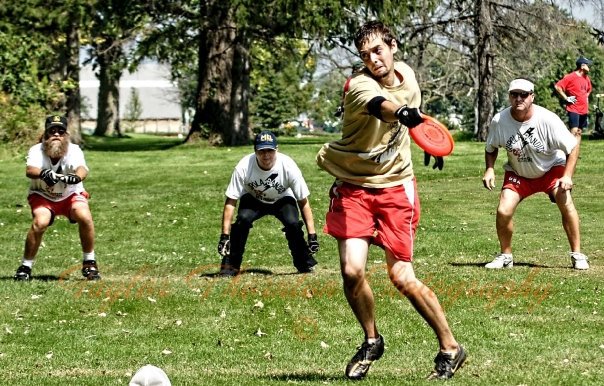
Michael Banghart throws vs. the Cupola Bandits
The IFT was held in various locations in the Upper Peninsula:—Hancock, Baraga, Marquette, Lake Linden—and the Nachazel Cup, is still given to the winner each summer. It is currently held in Hancock's Driving Park and it is the longest running event in discs sports history. Additional tournaments are held annually in the Chicago area; New London, Wisconsin; Marquette, Michigan; Lansing, Michigan; and Albuquerque, New Mexico. The two best teams of the modern era have been the Boomtown Saints from Lansing, Michigan and the Appleton Assassins from Wisconsin. The core of both teams are a pair of brothers whose fathers played Guts in the 70s and 80s. Both teams play the game at the highest level and arguments are made over which team from which era is the best ever.
The Nachazel Cup is now mounted on a beautiful base made by Jeff "Fro" Warren who was on the Lightweight team that won the IFT in '81. He also created a traveling Nachazel Cup and the IFT winners are listed on both trophies.
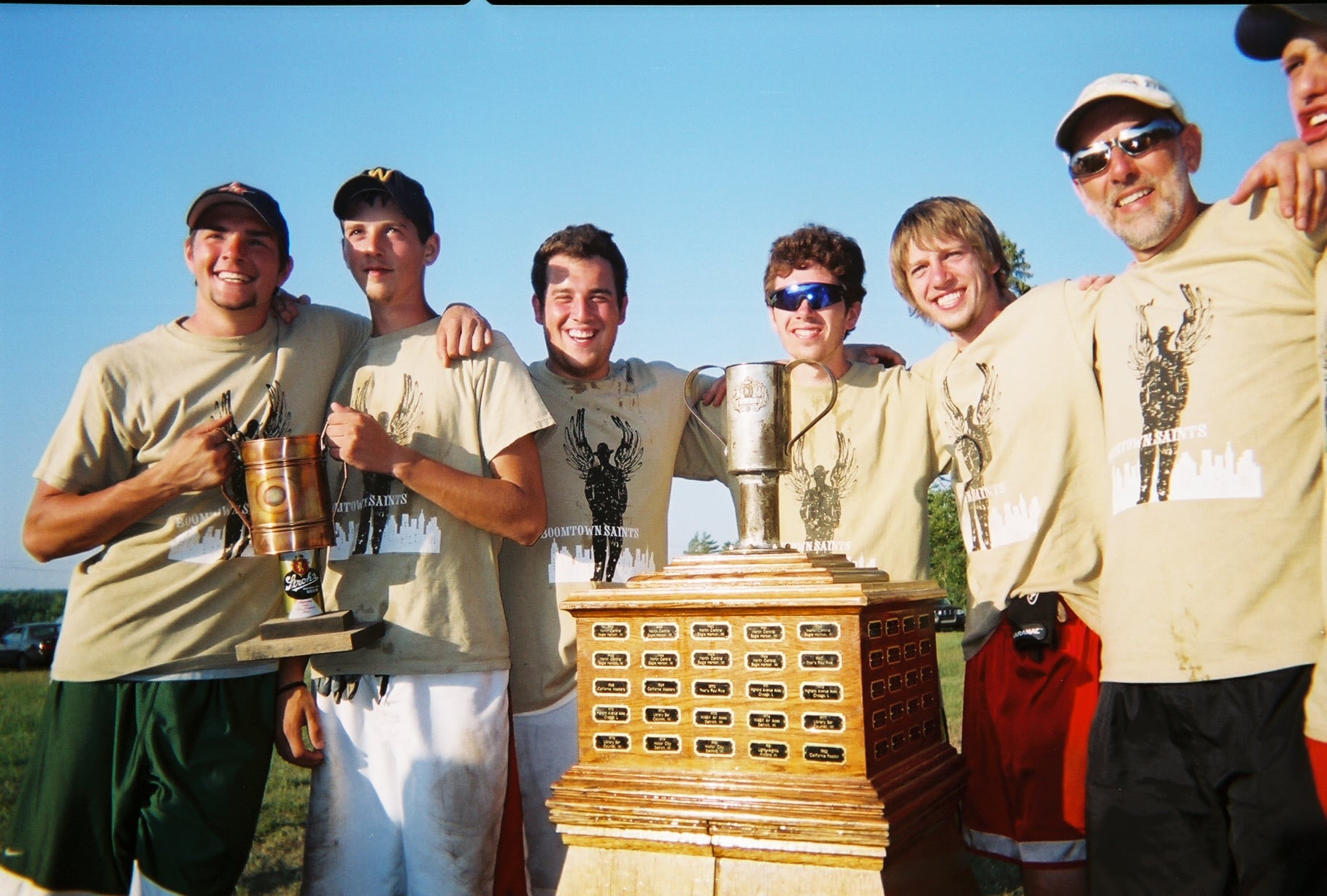
The Boomtown Saints
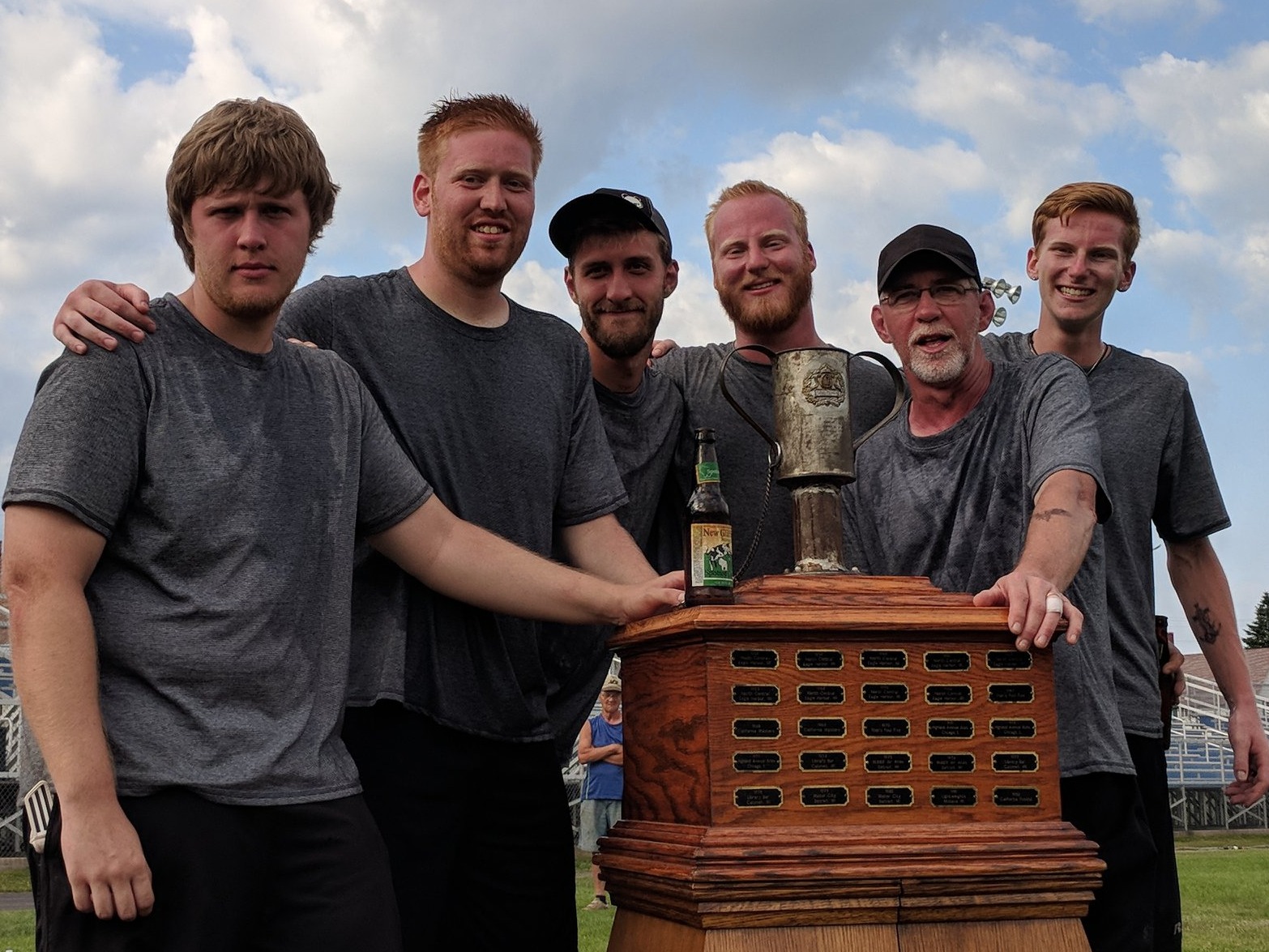
The Appleton Assassins
Guts has continued to thrive in Japan and Taiwan and every four years the sport is part of the World Ultimate & Guts Championships (WUGC) hosted in cities across the globe. The finals have typically been Team USA besting very good Japanese teams in epic battles. Most Guts historians consider Team USA Blue (a combination of Saints and Assassins) the "Dream Team", sent to London to win the gold in 2016, to be the best Guts team ever assembled.

The last decade has seen an infusion of youth into the game as the next generation of Guts players are now in their athletic prime and playing the game at an extremely high level. Most tournaments feature 12-20 teams and the athleticism with which the game is played rivals the play of the 70s, when the game was at its peak participation-wise. The competition remains fierce, the community is very tight-knit, and while rivalries exist on the field, friendships are also made and cultivated through this fantastically macho game played with a child's toy.

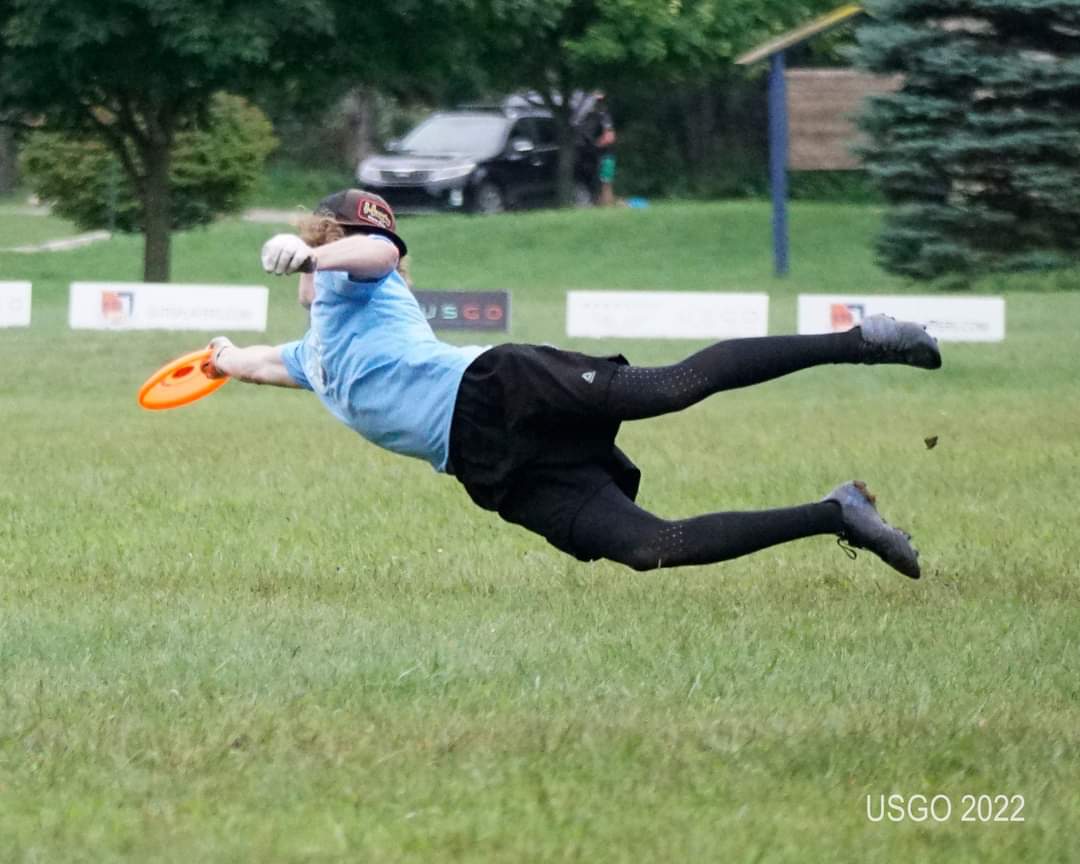
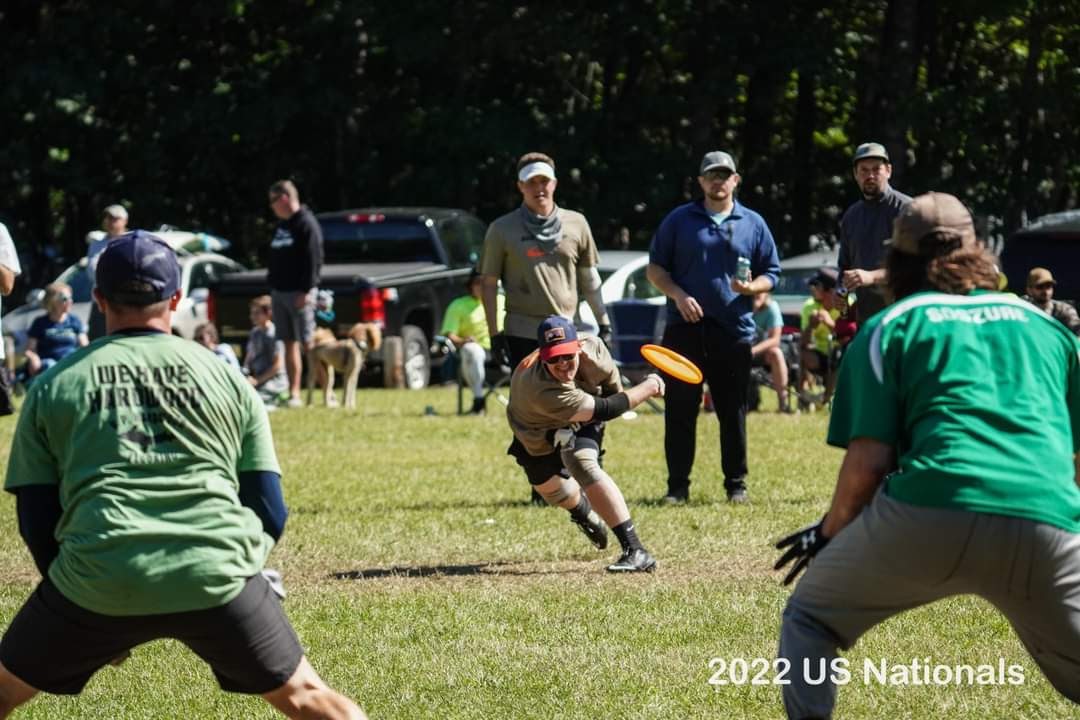
More photos and video montages of the our great history can be found at gutsfrisbeearchive.com.
